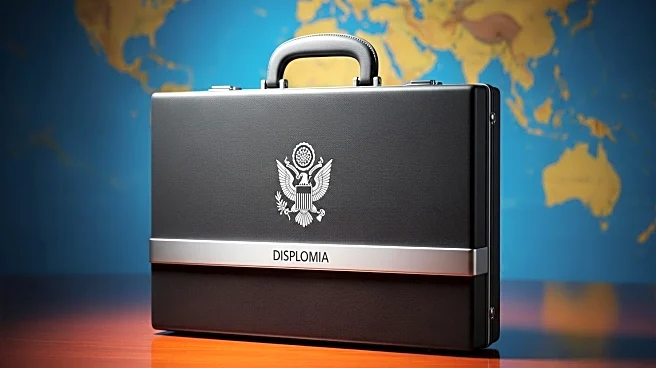What is the story about?
What's Happening?
Javed Ali, who previously served as the senior director for counterterrorism at the National Security Council, has provided insights into President Trump's proposed peace plan aimed at resolving the ongoing conflict between Israel and Hamas in Gaza. The plan, which has been a subject of international attention, seeks to establish a framework for peace in a region that has been marred by violence and political instability. Ali's evaluation of the plan highlights the complexities involved in achieving lasting peace and the challenges that both parties face in reaching a mutual agreement. His analysis comes at a time when geopolitical tensions are high, and the need for effective diplomatic solutions is critical.
Why It's Important?
The significance of Javed Ali's evaluation lies in the broader implications of President Trump's peace plan on international relations and regional stability. The Israel-Hamas conflict has long been a focal point of Middle Eastern politics, affecting global security and economic interests. A successful peace plan could lead to reduced hostilities, improved diplomatic relations, and potentially foster economic growth in the region. However, the plan's success depends on the willingness of both parties to compromise and the support of international stakeholders. Ali's insights provide a nuanced understanding of the potential impacts on U.S. foreign policy and the strategic interests of allies in the region.
What's Next?
The next steps involve continued diplomatic efforts and negotiations between Israel and Hamas, with the support of international mediators. The U.S. government, under President Trump's leadership, is expected to play a pivotal role in facilitating discussions and ensuring that the peace plan addresses the core issues of the conflict. Stakeholders will be closely monitoring the situation to assess the viability of the plan and its reception by both parties. The outcome of these negotiations could have lasting effects on regional dynamics and U.S. involvement in Middle Eastern affairs.
Beyond the Headlines
Beyond the immediate diplomatic efforts, the proposed peace plan raises questions about the ethical and cultural dimensions of conflict resolution. The historical grievances and deep-seated mistrust between Israel and Hamas pose significant challenges to achieving peace. The plan's success may require addressing these underlying issues and fostering a culture of reconciliation and mutual respect. Additionally, the role of external powers in influencing the peace process highlights the complexities of international diplomacy and the need for balanced approaches that prioritize human rights and sustainable development.















